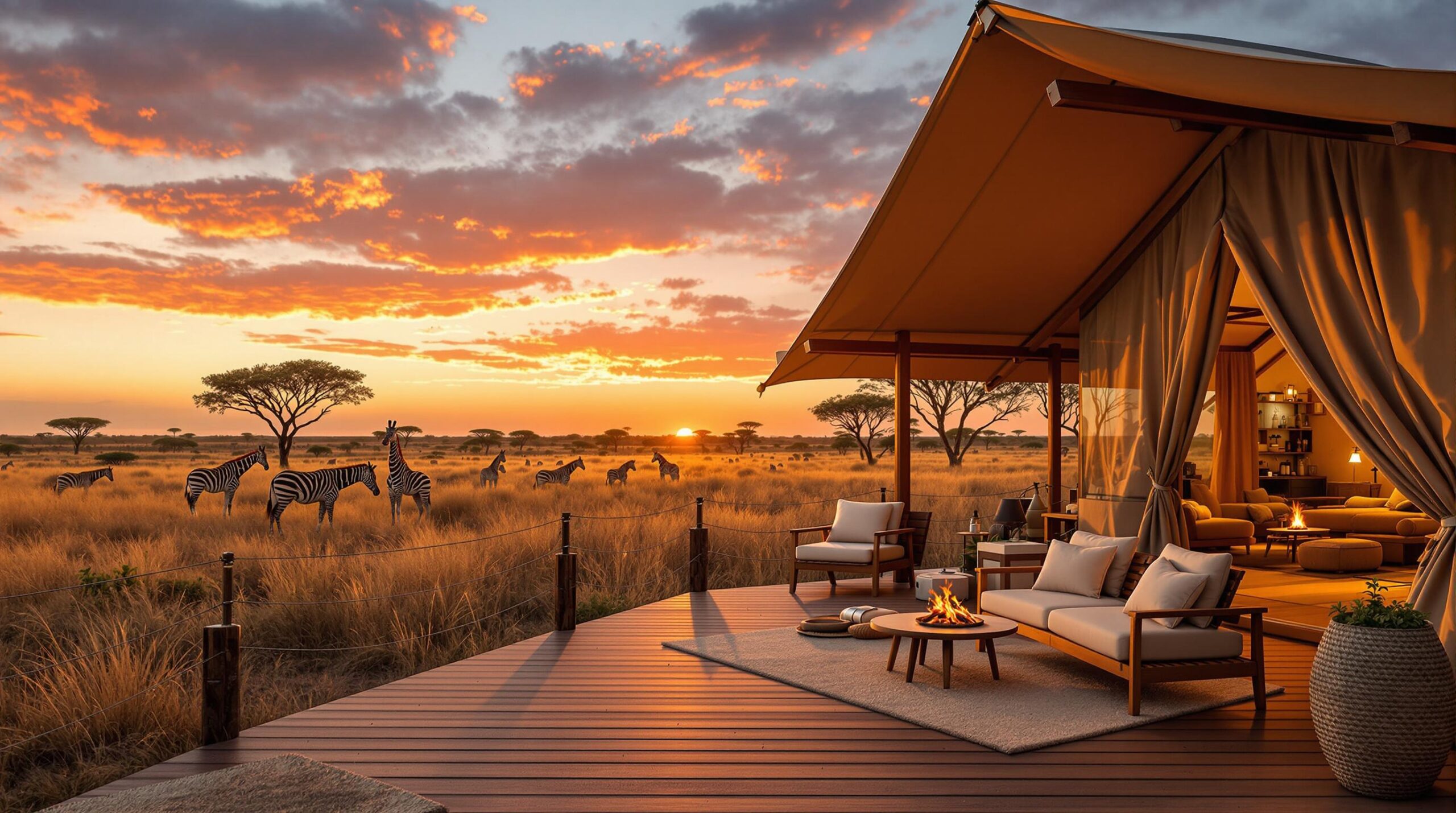Mahali Mzuri, the luxury safari camp within Sir Richard Branson’s Virgin Limited Edition portfolio, has reopened following a full interior refurbishment aimed at enhancing the guest experience while preserving the cultural and environmental integrity of Kenya’s Maasai Mara.
The renovation, completed in 2024, introduces design and operational updates intended to reflect local traditions and support long-term sustainability.
The safari camp, comprising 12 luxury tented suites, now features interiors inspired by Maasai culture, including the use of traditional red and black tones, natural materials, and locally sourced artwork.
The refurbishment includes updated communal spaces such as the dining tent, lounge, bar, and an infinity pool that overlooks the landscape known for the annual Great Wildebeest Migration.
The redesign was led by Lynne Hunt London and involved close collaboration with local communities, according to Travel and Tour World.
A curated collection of East African art has been installed throughout the camp, intended to deepen guests’ engagement with regional culture.
The reopening coincides with the July start of the Great Wildebeest Migration, a seasonal event that attracts global visitors to the Maasai Mara.
The migration, involving over a million wildebeest traveling from Loita Hills to the Serengeti, is one of the most prominent wildlife spectacles in East Africa and a key draw for safari tourism operators and hospitality providers in the region.
In a statement marking the reopening, Sir Richard Branson said, “We’re incredibly proud of what Mahali Mzuri has become.”
“This refurbishment honors the beauty of the Maasai Mara and the incredible communities that make this region so special. We can’t wait for our guests to return and experience it all in a way that’s more immersive, comfortable, and meaningful than ever.”
Mahali Mzuri was originally developed to help protect vital wildlife corridors and continues to support conservation and community outreach.
Over 80% of staff are employed from nearby villages, and the camp is involved in education and healthcare initiatives, including ongoing support for a local primary school serving around 300 children.
These efforts are largely supported by guest contributions and have been sustained for more than a decade.
From an operational standpoint, Mahali Mzuri now runs on solar energy, with its system meeting nearly all of its electricity needs.
Additional environmental improvements include a rainwater harvesting system and a growing kitchen garden, which contribute to reducing the camp’s ecological footprint.
For business owners in the outdoor hospitality sector, the renovation of Mahali Mzuri highlights evolving guest expectations in luxury nature-based tourism, blending cultural authenticity, environmental stewardship, and premium experiences.
The emphasis on community integration and renewable energy adoption also reflects a broader industry trend toward responsible travel and sustainable infrastructure investment.
Operators considering upgrades or new developments in similar ecotourism regions may find Mahali Mzuri’s approach a relevant model for integrating high-end hospitality with regional heritage and environmental care.
Mahali Mzuri’s updated tented suites, including a redesigned family unit, offer open-plan layouts, wraparound windows, and panoramic views of the surrounding landscape.
With a focus on privacy and immersion, each suite combines outdoor access with interior comfort, aiming to create an intimate yet elevated safari stay.
As tourism in 2025 continues to pivot toward meaningful travel experiences, Mahali Mzuri positions itself as a case study in balancing luxury and sustainability while preserving the cultural identity of its location.


